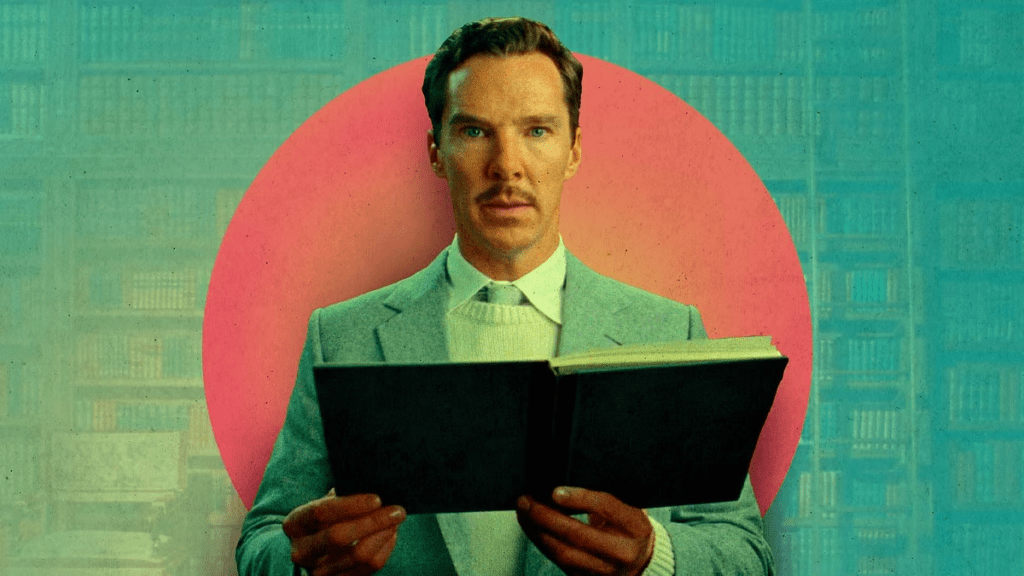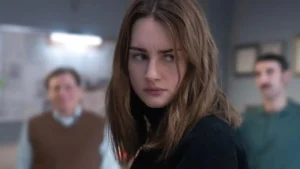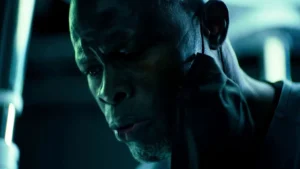Summary
Wes Anderson and Roald Dahl reunite for a charming take on The Wonderful Story of Henry Sugar, and the collaboration brings the best out of both.
The Wonderful Story of Henry Sugar, adapted from the same-titled short story by Roald Dahl and streaming on Netflix, condenses Wes Anderson’s trademark stylistic quirks in a way that accomplishes something quite remarkable – it makes Wes Anderson’s trademark stylistic quirks tolerable.
I kid, of course, though not entirely. Anderson’s films, all stocked full of eccentric, deliberately deadpan characters navigating stylized sets that often look like to-scale models instead of real places, are divisive. Some have grown tired of them, which is perhaps why his latest feature, Asteroid City, seemed to come and go without much fuss and with a critical and audience reception teetering much closer to middling than he’s probably used to.
But The Wonderful Story of Henry Sugar makes some clever choices in how it adapts the material, and those choices marry Anderson’s eccentricities with Dahl’s very specific writing in a way that complements them both.
The result is a 40-ish-minute theatrical reading of the story, without a word changed and with the exceptional cast taking it in turns to recount the writings directly to the camera. While this happens, various sets and backdrops are wheeled in and out on the fly as the story nests inside itself, each perspective transforming the frame with the help of stagehands moving around props and furniture.
The story begins with Dahl himself, played by Ralph Fiennes, introducing us to Henry Sugar (Benedict Cumberbatch) from his well-appointed writing hut at Gipsy House, where he really did write the ostensibly true story between February and December of 1976.
The particulars concern Sugar, a monied and pompous bachelor who cheats at cards, stealing a thin notebook from a friend’s library which contains the first-hand account of one Doctor Chatterjee (Dev Patel), who had reproduced the first-hand account of a traveling circus performer named Imdad Khan (Ben Kingsley) who had taught himself to see without the use of his eyes.
Sugar, which is supposedly a pseudonym to protect the identity of the man and his well-to-do British family, uses the book to teach himself the same ability so that he can cheat at cards.
The reunion of Dahl’s writing and Anderon’s filmmaking for the first time since Fantastic Mr. Fox yields similarly wonderful results. The cast, fronted by Cumberbatch but dominated by Kingsley in multiple roles, some achieved with the help of real-time makeup and prosthetics, are all delightful in their deadpan delivery.
The only real misstep is the speed with which everything unfolds, which sometimes feels like it strips some of the character from Dahl’s prose and doesn’t give certain moments time to breathe, but it is all, admittedly, part of the overall aesthetic.
The best way to enjoy Wes Anderson, I’ve found, is in small doses, so The Wonderful Story of Henry Sugar seems an especially good use of him. This is perhaps just as well since the short is the first of a collection of four Dahl adaptations by Anderson, the others being The Swan, Poison, and The Rat Catcher.
It’s refreshing to see big-name British actors and a famously prestige filmmaker operating in this kind of low-key mode, and one supposes it’s only thanks to Netflix and platforms like it that we can see it happen. This is a lovely, charming way to spend 40 minutes, and really, that’s all it’s intended to be.
Read More: The Wonderful Story of Henry Sugar Ending Explained




